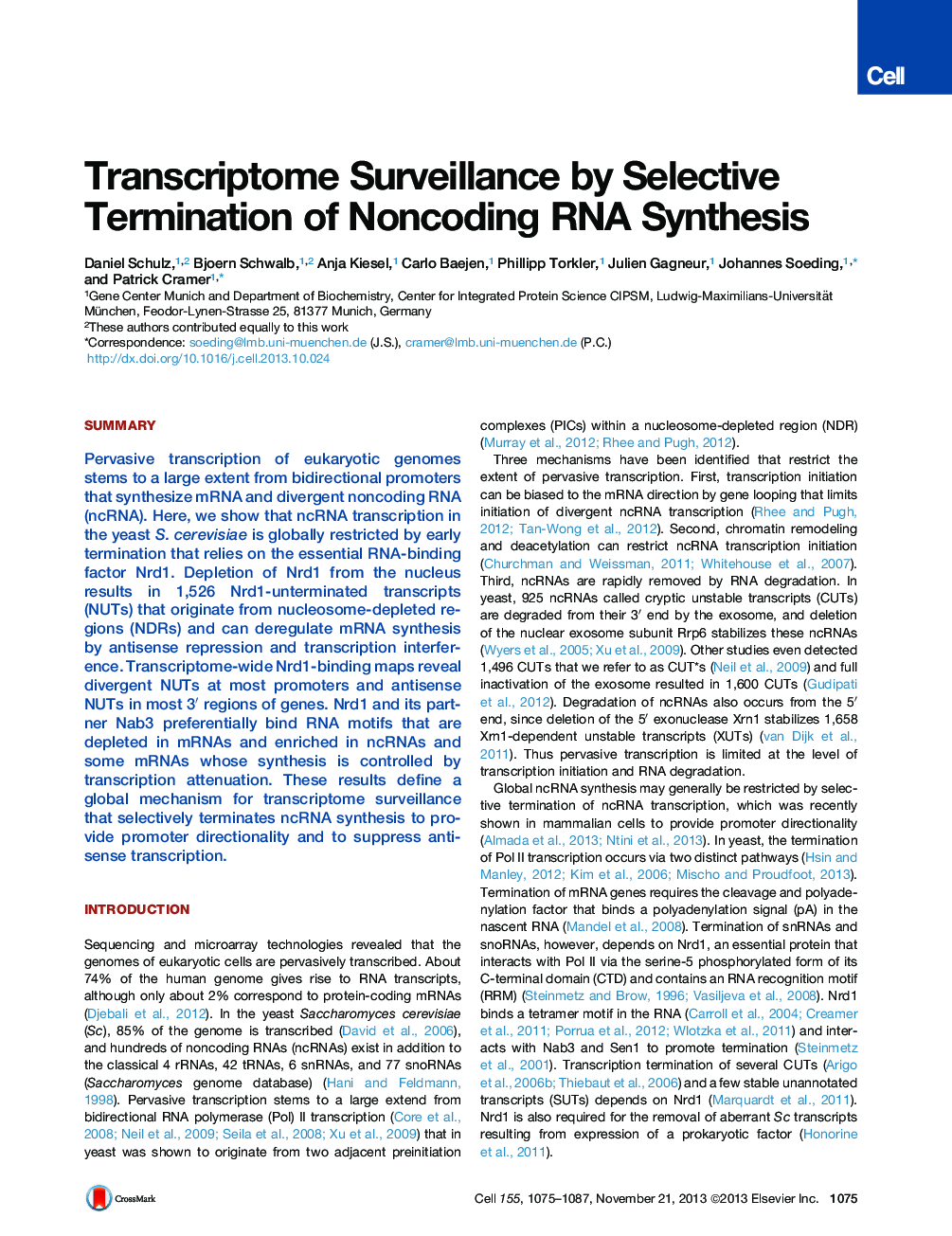| Article ID | Journal | Published Year | Pages | File Type |
|---|---|---|---|---|
| 2035646 | Cell | 2013 | 13 Pages |
•Essentially all yeast promoters are bidirectional•Selective termination of ncRNA transcription depends on Nrd1•Nrd1-binding motifs are enriched in ncRNAs and depleted in mRNAs•Failure of the surveillance mechanism results in transcriptome deregulation
SummaryPervasive transcription of eukaryotic genomes stems to a large extent from bidirectional promoters that synthesize mRNA and divergent noncoding RNA (ncRNA). Here, we show that ncRNA transcription in the yeast S. cerevisiae is globally restricted by early termination that relies on the essential RNA-binding factor Nrd1. Depletion of Nrd1 from the nucleus results in 1,526 Nrd1-unterminated transcripts (NUTs) that originate from nucleosome-depleted regions (NDRs) and can deregulate mRNA synthesis by antisense repression and transcription interference. Transcriptome-wide Nrd1-binding maps reveal divergent NUTs at most promoters and antisense NUTs in most 3′ regions of genes. Nrd1 and its partner Nab3 preferentially bind RNA motifs that are depleted in mRNAs and enriched in ncRNAs and some mRNAs whose synthesis is controlled by transcription attenuation. These results define a global mechanism for transcriptome surveillance that selectively terminates ncRNA synthesis to provide promoter directionality and to suppress antisense transcription.
Graphical AbstractFigure optionsDownload full-size imageDownload high-quality image (206 K)Download as PowerPoint slide
